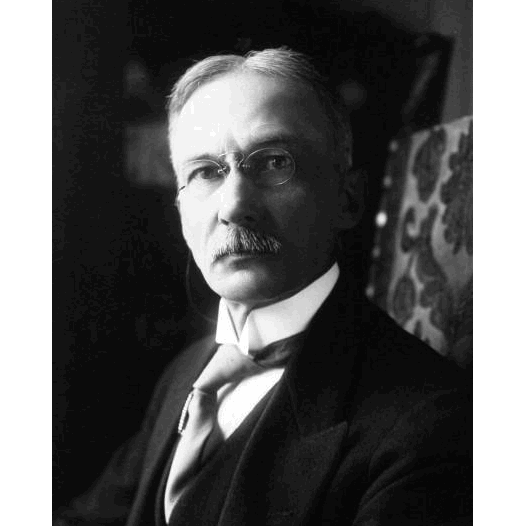January 12: James Mark Baldwin (1861)
 It was on this date, January 12, 1861, that American philosopher and psychologist James Mark Baldwin was born. He studied theology for a time at the College of New Jersey (now Princeton University), but switched to philosophy and taught French and German at Princeton Theological Seminary. Baldwin made important contributions to early psychology, psychiatry, and to the theory of evolution. He taught at Toronto, Princeton and Johns Hopkins. He had the bad judgment to be arrested in a raid on a Baltimore brothel in 1908, the scandal of which ended his American career and forced a move to Paris, where he urged American involvement in World War I. He subsequently taught for periods at Mexico University. He was Herbert Spencer lecturer at Oxford in 1915, and received the Gold Medal of the Danish Academy of Science. Baldwin’s most important theoretical legacy is the concept of the Baldwin effect (also known as Baldwinian evolution), a mechanism for specific selection for general learning ability in which a trait, as a result of its interaction with its environment, becomes gradually assimilated into its developmental genetic or epigenetic repertoire. As he famously said, “Heredity provides for the modification of its own machinery.”
It was on this date, January 12, 1861, that American philosopher and psychologist James Mark Baldwin was born. He studied theology for a time at the College of New Jersey (now Princeton University), but switched to philosophy and taught French and German at Princeton Theological Seminary. Baldwin made important contributions to early psychology, psychiatry, and to the theory of evolution. He taught at Toronto, Princeton and Johns Hopkins. He had the bad judgment to be arrested in a raid on a Baltimore brothel in 1908, the scandal of which ended his American career and forced a move to Paris, where he urged American involvement in World War I. He subsequently taught for periods at Mexico University. He was Herbert Spencer lecturer at Oxford in 1915, and received the Gold Medal of the Danish Academy of Science. Baldwin’s most important theoretical legacy is the concept of the Baldwin effect (also known as Baldwinian evolution), a mechanism for specific selection for general learning ability in which a trait, as a result of its interaction with its environment, becomes gradually assimilated into its developmental genetic or epigenetic repertoire. As he famously said, “Heredity provides for the modification of its own machinery.”
Baldwin’s agnosticism is expressed in his Fragments of Philosophy and Science (1903), in which he rejects all religious creeds and accepts God only as “a construction of the imagination” or “the ideal self.” For example, Balwin writes, “Plato stands for the union of truth and goodness in the supreme idea of God. … All along we find that social life – religion, politics, art – reflects the stages reached in the development of the knowledge of self; it shows the social uses made of this knowledge.” Because he claims this vague objective basis for the idea of God, he escapes being accused of atheism.

